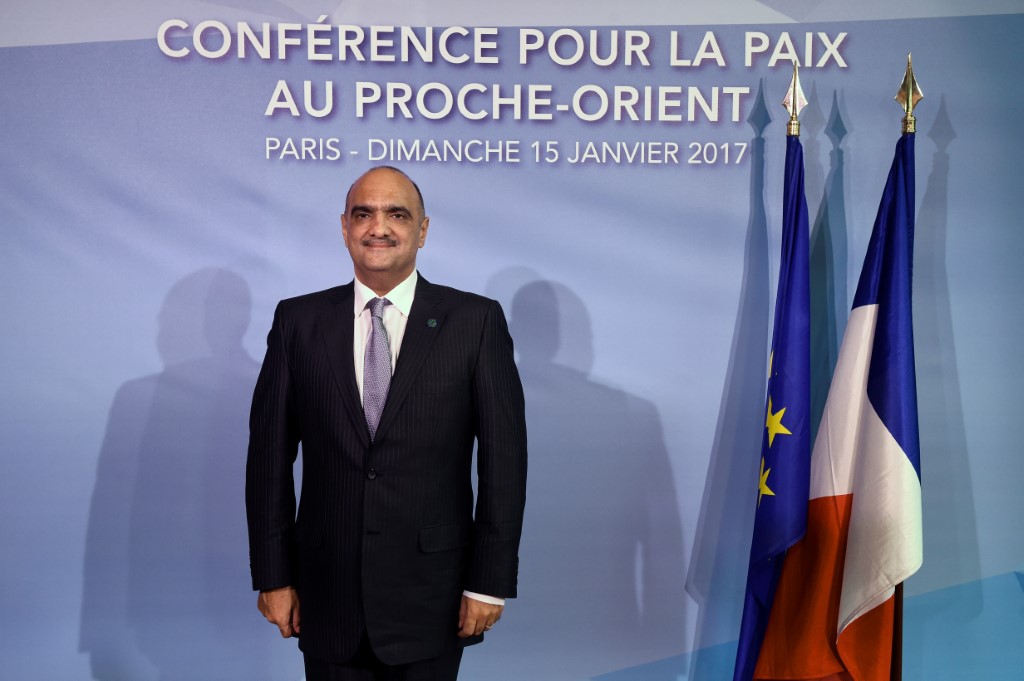CHICAGO: The two-state solution to the Israeli-Palestinian conflict, and Middle East peace in general, are at stake for Arab Americans in the Nov. 3 election battle between US President Donald Trump and Joe Biden, activists for each side argued on Wednesday.
Ed Gabriel, former US ambassador to Morocco and a spokesman for the organization Arabs for Biden, and Republican activist and Trump supporter Dalia Al-Aqidi were both guests on “The Ray Hanania Show,” broadcast in Detroit on the US Arab Radio Network.
They said Arab Americans will help define which way the US moves forward in the Middle East.
Gabriel said Biden is “the last chance” for the two-state solution, and for giving Palestinians a stronger negotiating footing with Israel.
“We’re hanging by a thread on a two-state solution,” Gabriel said during the live radio show, which is sponsored by Arab News. “I think he can get us there because of the trust and confidence he has. One thing I learned in diplomacy: If you don’t have the trust and confidence of both sides, you’re in trouble … Joe has got that.”
Watch: The Ray Hanania Show with guests Ed Gabriel and Dalia Al-Aqidi.
Gabriel said in such matters, Biden is “very close in personality and approach” to former President Bill Clinton. “Biden has balance, he’s trusted by both sides and he can bring them together,” Gabriel added.
Noting that American Arabs and Muslims tend to be conservative socially and politically, Al-Aqidi questioned the failures of past Democratic administrations to deliver on their promises of peace, while Trump has delivered results.
“We just witnessed the most important two deals between two Middle Eastern countries (the UAE and Bahrain) and Israel … More to come,” she said.
“It’s one of the best things to have happened to the Middle East in 40 years. This is step one to a more peaceful region.”
Al-Aqidi said Arab Americans can play a role in supporting policies that keep threats from extremists such as Hezbollah and Iran in check.
“Let us not forget that in the Middle East, there’s a huge threat from the Iranian regime and from Turkey as well,” she added.
“It’s the right time now for people in the Middle East to live in peace. That’s what President Trump did, which many presidents failed in this aspect.”
Gabriel said a Biden administration would be “tough” on Iran and Hezbollah. “We’re going to go beyond a nuclear deal with Iran to look at missile technology and their proxies in the region that foment terrorism,” he added.
“But … this is America. We don’t lead with our guns. We should be leading with our values. Joe Biden leads with his values. As Joe would say, inshallah.”
Gabriel criticized Trump for ostracizing not only the Palestinians during his Middle East peace efforts, but also American Arabs and Muslims.
Biden “produced a six-page Arab-American policy paper which you can go online and read — six pages of how this future administration would deal with Arab Americans on domestic and foreign policies,” Gabriel said.
“We have dozens of meetings every month with all kinds of sub-groups of the Arab-American population. We’re listening and we’re changing. We’re always one email away from Joe Biden … It comes from his heart,” he added.
“Last week in the (presidential) debate, he looked at Trump in the eyes, and when Trump gave one of his comments Joe said ‘inshallah.’ And Joe said that for a reason … He has been across the table from Arab leaders … He has a warmth about him that’s very Arab.”
The broadcast is available on the Arab News Facebook page, where the interviews were streamed live.





